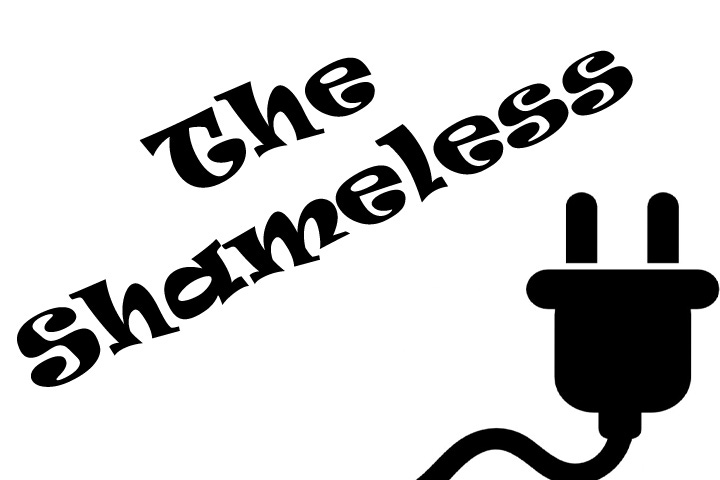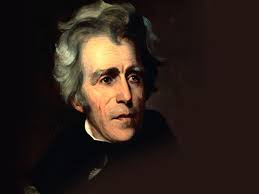Issue #118 American History August. 23, 2022
Andrew Jackson has often been credited with creating the modern United States banking system, but that is not exactly true. Actually, Alexander Hamilton, the first Secretary of the Treasury set up the first Bank of the United States, and the United States banking system went through many changes until the first half of the twentieth century.
No ads or annoying popups ever! So instead, please see the important information at the bottom of this post. Thanks!
Thomas Jefferson and Andrew Jackson were both credited with developing the Democratic Party (originally called the Democratic-Republican Party), and the modern Democrats named their annual fundraising dinner the Jefferson-Jackson Dinner, that is until both Jefferson and Jackson were proven to be slaveholders. The annual event is now called the “Legacy Dinner.” Andrew Jackson is given credit for the development of the two-party system we have today.
Jackson’s early life formed the foundation for his later policies
Jackson was the son of immigrants from Ireland, and when the British invaded the Carolinas in 1780 and 1781, Jackson’s mother and two brothers died. Jackson carried his hostility towards Great Britain for the rest of his life.
Later, Jackson lost a lot of money because of a failed land deal where he was left holding the bank notes of the bankrupt man from whom he bought the land, and he was left penniless. This led to his distrust of banks and paper money.
Andrew Jackson was a military general in the early 1800s and became a national hero who introduced “populism” into national politics, and also believed that as president he had absolute authority to run the government as he pleased, even if it meant ignoring laws and treaties.
Andrew Jackson as president
In 1824, after holding several government positions in Tennessee, Jackson was convinced to run for president in a five-way race. He won the popular vote, but for the first time in history, neither Jackson nor any of the other candidates received a majority of the electoral college votes.
The House of Representatives decided the result of the election, and after Henry Clay threw his support to Secretary of State John Quincy Adams, Jackson was angry enough to resign from the U.S. Senate.
In 1828, Jackson succeeded President John Quincy Adams, who believed that federal government intervention and taxation were necessary to build necessary and fuel economic development.
On the other hand, Jackson believed that government was a threat to be contained, that national banks like the one originated by Alexander Hamilton were abominations and threats to freedom, and that the federal government's role in building infrastructure should be limited.
Although Jackson was a strong believer in states’ rights, he was also a strong nationalist and said that no state can decide which laws it will abide by and not abide by. When South Carolina fought with Jackson over federal tariff rules, he got Congress to authorize him to use military force if necessary to have the law operative in South Carolina, and South Carolina backed down."
Jackson made it clear during his two terms that he was the absolute ruler of his administration’s policy, and he did not defer to Congress or hesitate to use his presidential veto power.
Jackson's small-government fetishism and crank monetary policy views stunted the attempts of John Quincy Adams to invest in American infrastructure and led to the Panic of 1837, a financial crisis that touched off a recession lasting seven years. If that weren't enough, he was a war criminal who suspended habeas corpus and executed prisoners for minor infractions during his time as a general in the War of 1812.
Of course, the policies of most of the Democrats in the 19th and most of the 20th centuries were racist and violent, while the Republican Party during that same time was the more progressive party. Presidents Franklin D. Roosevelt, John F. Kennedy, and Lyndon B. Johnson were outliers in the Democratic Party before the 1970s, while President Dwight D. Eisenhower was the outlier in the Republican Party. The policies and philosophies of both parties switched by the 1970s.
Andrew Jackson’s Racial Policies
Andrew Jackson is now most remembered for implementing the Indian Removal Act that led to the “Trail of Tears”. Prior to the 1830s, over 125,000 members of the indigenous nations lived on millions of acres in Georgia, Tennessee, Alabama, North Carolina, and Florida, as they had for hundreds, if not thousands of years. Those areas were desired by white settlers who wanted to grow cotton on the land belonging to the Indians and started taking land by any means necessary, including violence and murder.
As a slave-owner himself, Jackson opposed policies that would have outlawed slavery in western territories as the United States expanded.
Enslaved workers grew his cotton, built and tended his house, and helped him gain a social foothold in Southern society. Jackson owned as many as 161 enslaved people, buying and selling them, using their labor to build his fortune, and even bringing them to the White House to work for him.
Although he allowed his slaves to form families on his Heritage plantation, he was also known to be very cruel to his slaves.
Before he was president, he was a military general who led brutal and murderous campaigns against the Creeks in Georgia and Alabama and the Seminoles in Florida.
In 1830, President Jackson signed the Indian Removal Act, giving the federal government the power to exchange native-held lands in the Southeast for land in the west, named “Indian Territory” and primarily located in present-day Oklahoma.
In 1831, the Choctaw was the first native nation to be totally expelled from their land. They were forced to walk to the Oklahoma Indian Territory on foot and without any food, supplies, or other help from the federal government.
Thousands died along the way, and the forced removal was named by one Choctaw leader as a trail of tears and death.
In 1832, the Supreme Court ruled in Worcester v. Georgia that native nations were sovereign nations and that states had no right to impose their laws on those sovereign nations. However, Andrew Jackson decided that he would not abide by that decision.
Although removal treaties were signed, Jackson and his administration just ignored those treaties and the law and forced the native people to vacate the lands they had lived on for centuries and move further west.
By 1840, tens of thousands of Native Americans had been driven off of their land in the southeastern states and forced to move across the Mississippi to Indian Territory. Whooping cough, typhus, dysentery, cholera, and starvation were epidemic along the 5,000-mile-long trail that stretched across nine states, killing thousands and destroying native nations that has existed for hundreds of years.
The Disputed Legacy of President Andrew Jackson
The popular view of President Andrew Jackson says that he laid the framework for democracy, paid off the national debt, gained new lands for America, strengthened relationships with foreign nations globally, and issued a new currency.
As more and more true facts about the entirety of Jackson’s accomplishments and presidency come to light, honoring his legacy becomes more and more difficult and complicated.
It is the same with the history and legacy of President Thomas Jefferson.
They are the founders of the Democratic Party, but the good things they did are often and understandably overshadowed by the bad things they did.
What do you think about the difference between the priorities of the Democrats versus those of the Republicans? Let us know in the comments!
Help us to grow!
“We Are Speaking” is a reader-supported publication. To receive new posts and podcast episodes and to support our work, consider becoming a free or paid subscriber. We publish 7 days/week and 28+ issues/month. You. can upgrade your free subscription to the paid level. It costs monthly and annual paid subscribers less than 35¢ an issue. Thank you!

Thank you for checking out some of the books and businesses of the TeamOwens313 Global Creative Community:
Detroit Stories Quarterly (DSQ) Afro-futurism Magazine
The Mayonnaise Murders: a fantasy mystery novel by Keith A. Owens
The Global CREATIVE Community (GCC) Facebook Group for Independent Writers and Creative and Solo Professionals
The Global Creative Community Private Membership Group for Independent Writers and Creative and Solo Professionals
The Global Creative Community Brand and Marketing Academy: Training and Coaching for Independent Writers and Creative and Solo Professionals
Pam’s Branding and Marketing Articles for Independent Writers and Creative and Solo Professionals on LinkedIn




